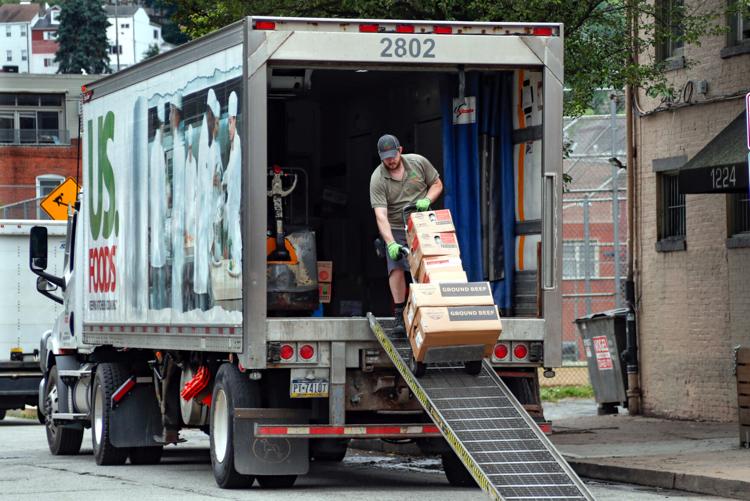By Anthony Hennen | The Center Square
(The Center Square) – The next plan for viable long-term funding to support Pennsylvania’s highways and bridges may be twofold: a tax on delivered goods and a road use fee on traditional and electric vehicles.
After a state court killed the Pennsylvania Department of Transportation’s plan to toll nine bridges across the state, as The Center Square previously reported, other solutions are being tossed around to replace the state’s gas tax.
The tax, which along with the federal gas tax supplies roughly 75% of PennDOT’s revenue, is expected to decline as vehicles get more fuel-efficient and the electric vehicle market expands.
“We’ve been sounding the alarm for years that the gas tax is an unreliable way to fund transportation, and we continue to welcome conversations with the General Assembly about these or other solutions that would allow us to phase out the gas tax and support Pennsylvania’s infrastructure for the long term,” PennDOT Press Secretary Alexis Campbell said.
Campbell noted that plans are in flux, so policies and recommendations could change. The ideas come from a 2021 Transportation Options Revenue Commission report, commissioned by Democratic Gov. Tom Wolf.
“A potential goods delivery fee – a flat fee imposed on the purchaser for the shipment of goods – was an idea that intrigued many on the TROC,” Campbell said. “The way that we shop now is different than it was even a decade ago, and the pandemic only made it more clear. We depend on products being delivered to our homes and businesses more than ever before, and this means increased freight traffic on our roadways.”
About 555 million packages were shipped in Pennsylvania in 2019, and 721 million in 2020.
“Increased freight traffic of course means increased wear and tear on our infrastructure,” Campbell said. “TROC found that a reasonable fee of $1 per shipment with an end point in Pennsylvania could raise $780 million for transportation in its first year. And because these deliveries impact both the state and local networks, these funds could help local municipalities with their roadways as well.”
PennDOT cannot unilaterally create the policy; the General Assembly would have to approve a package tax.
“We’ve been sounding the alarm for years that the gas tax is an unreliable way to fund transportation, and we continue to welcome conversations with the General Assembly about these or other solutions that would allow us to phase out the gas tax and support Pennsylvania’s infrastructure for the long term,” PennDOT Press Secretary Alexis Campbell said.
Campbell noted that plans are in flux, so policies and recommendations could change. The ideas come from a 2021 Transportation Options Revenue Commission report, commissioned by Democratic Gov. Tom Wolf.
“A potential goods delivery fee – a flat fee imposed on the purchaser for the shipment of goods – was an idea that intrigued many on the TROC,” Campbell said. “The way that we shop now is different than it was even a decade ago, and the pandemic only made it more clear. We depend on products being delivered to our homes and businesses more than ever before, and this means increased freight traffic on our roadways.”
About 555 million packages were shipped in Pennsylvania in 2019, and 721 million in 2020.
“Increased freight traffic of course means increased wear and tear on our infrastructure,” Campbell said. “TROC found that a reasonable fee of $1 per shipment with an end point in Pennsylvania could raise $780 million for transportation in its first year. And because these deliveries impact both the state and local networks, these funds could help local municipalities with their roadways as well.”
PennDOT cannot unilaterally create the policy; the General Assembly would have to approve a package tax.
